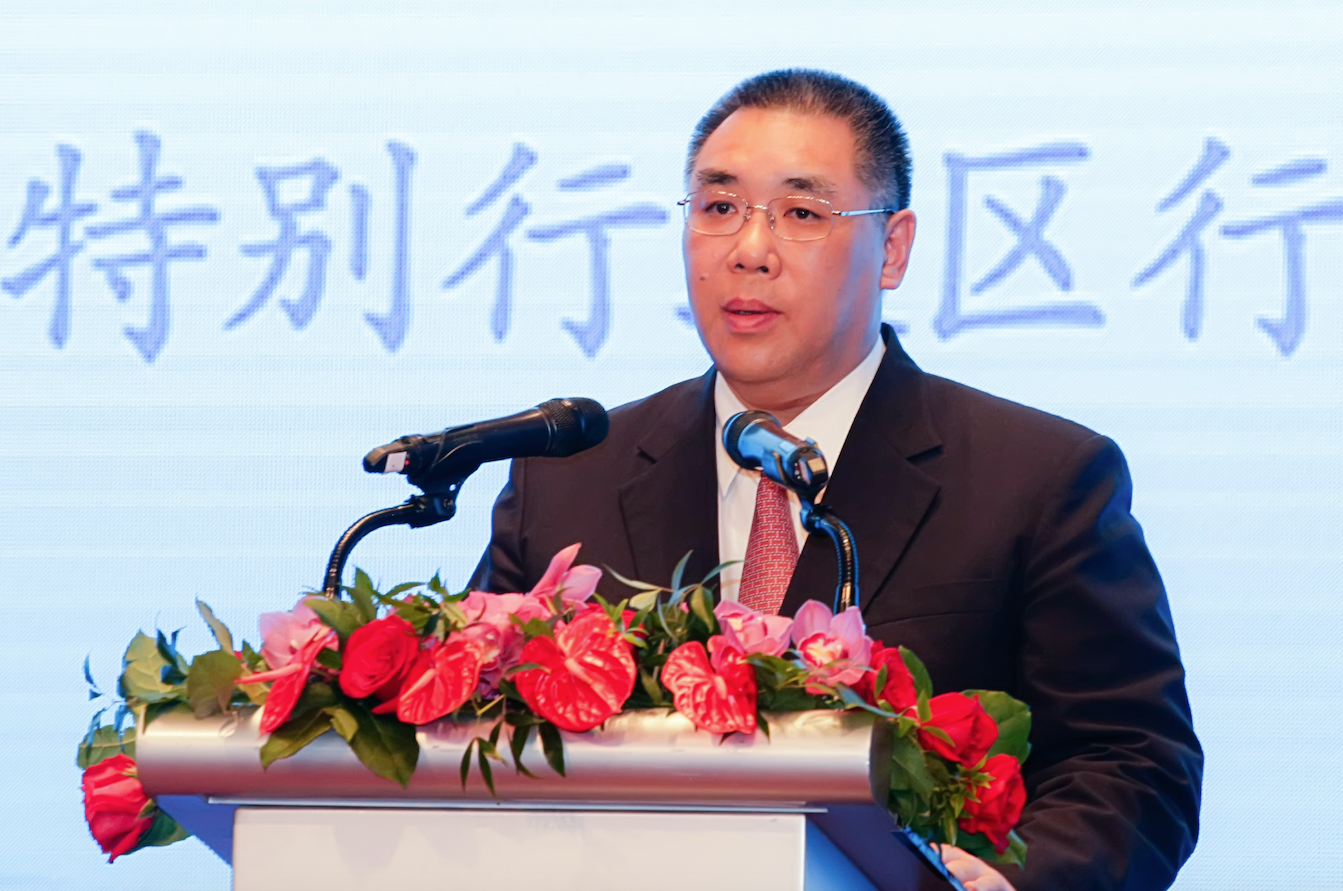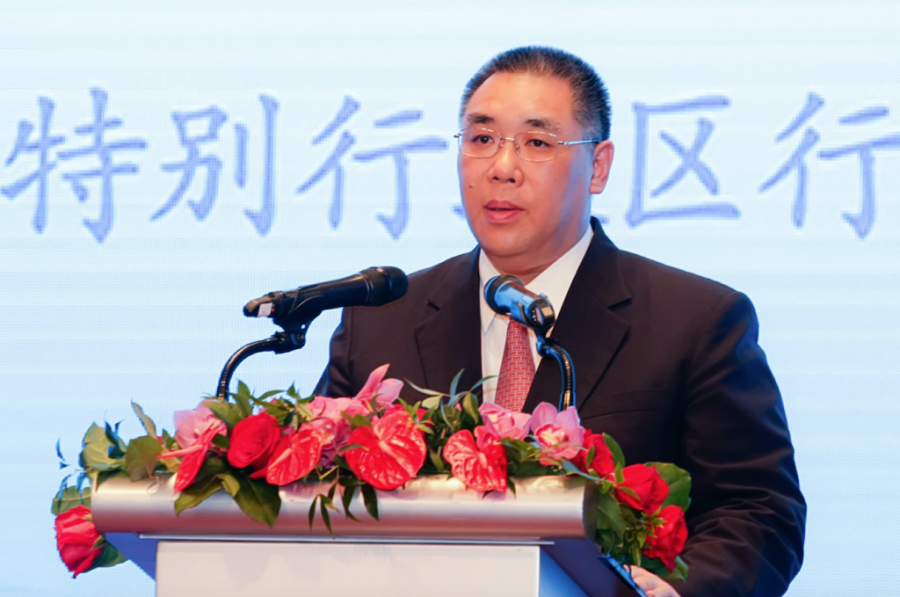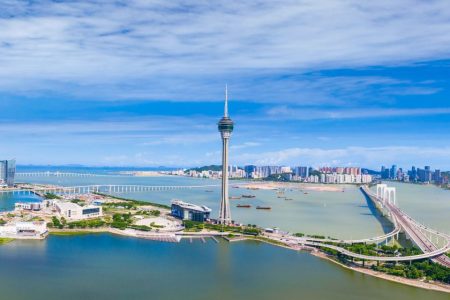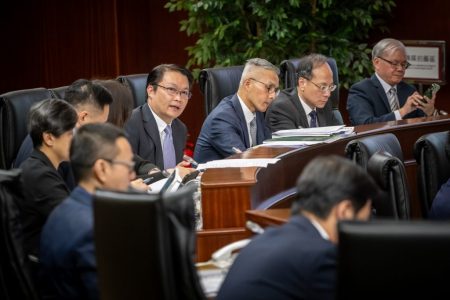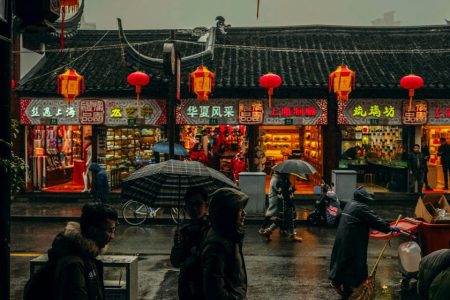Chief Executive Fernando Chui Sai On says he expects the Guangdong-Hong Kong-Macau Greater Bay Area to be developed into a “vibrant” international region and a world-class metropolis.
Chui made the upbeat remark in a speech during the ‘Jointly Promote the Development of [a] World-class City Cluster in the Guangdong-Hong Kong-Macau Greater Bay Area’ forum, which was jointly organised by the National Development and Reform Commission (NDRC) and the governments of Guangdong, Hong Kong and Macau, in Hong Kong on Saturday.
About 300 officials and other guests from the central government as well as the governments of the three places attended the forum, which took place at the InterContinental Hong Kong.
Chui addressed the forum following speeches by Communist Party of China (CPC) Guangdong Committee Secretary Hu Chunhua and Hong Kong Chief Executive Carrie Lam Cheng Yuet-ngor.
Chui said that he was looking forward to the success brought about by the hard work of “all parties” to develop the Greater Bay Area (GBA) into a “demonstration zone for integrated development”involving co-operation among the mainland, Hong Kong and Macau.
Chui said that he expected the GBA to be developed into a “vibrant” international bay area as well as a world-class metropolis for “living, employment and tourism”.
Chui also said the Macau government would carry out four major tasks for the city’s participation in the GBA development.
The first task was to take the initiative to enhance communication with the central government, with the aim of facilitating Macau’s integration with the national development, Chui said.
Chui also said that concerning the second task, the Macau government was striving to develop the city into “one centre and one platform” – a world tourism and leisure centre and a business-service platform between China and Portuguese-speaking countries (PSCs) – as well as to further promote the city’s economic diversification.
The third task of the Macau government was to deepen integration with Guangdong and Hong Kong, Chui said, adding his government would promote exchanges and friendship between people in Macau, Guangdong and Hong Kong.
Chui said that the fourth task was to “leverage” all available resources and to make a “concerted effort” for the GBA development.
On Saturday in Hong Kong, Chui and Lam as well as NDRC Chairman He Lifeng and Guangdong Governor Ma Xingrui signed the “Framework Agreement on Deepening Guangdong-Hong Kong-Macau Cooperation in the Development of the [Greater] Bay Area” at the Hong Kong Convention and Exhibition Centre, witnessed by President Xi Jinping, who paid a three-day visit to Hong Kong to preside over Saturday’s 20th anniversary of the establishment of the Hong Kong Special Administrative Region (HKSAR).
Premier Li Keqiang’s government work report to the opening session of the National People’s Congress (NPC) in Beijing on March 5 mentioned the central government’s plan to develop a “city cluster in the Guangdong-Hong Kong-Macau Greater Bay Area”.
The GBA will consist of Hong Kong, Macau and nine Guangdong cities, namely Dongguan, Foshan, Guangzhou, Huizhou, Jiangmen, Shenzhen, Zhaoqing, Zhongshan, and Zhuhai.
